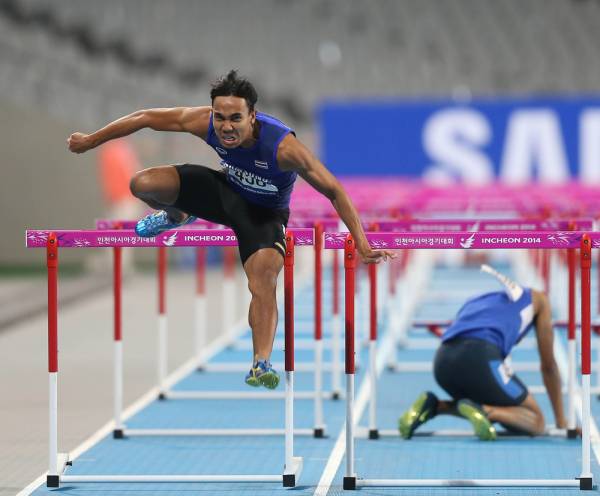In parts one and two of this series, I detailed two powerful practical mental tools to help get your mind in the right place: motivational themes and not fearing the negative. In this final part, we are going to talk about the true cornerstone to getting your mind right on game day – your mindset.
Mindset Is Everything
Mindset. Is. Everything. Burn that statement into your brain. Mindset should be considered the intangible X-factor that can strongly determine your competitive success or failure.
The reality you perceive is always the end product of your mindset. But a nigh overlooked aspect of mindset is this: your mindset is but a true reflection of who you are as a person. In other words, the personal qualities you possess and represent fully imbue your mental outlook.
With that in mind, determining the best mindset for your game day is really about honing these key personal qualities. While everyone has a different personality, I have found there are five key mindset qualities common with nearly all successful athletes:
- Persistence
- Positive Realism
- Humility
- Vulnerability
- Lack of Regrets
Mindset Qualities
1. Persistence
Persistence is simply the quality of always continuing to move forward. To continue regardless of setbacks. To endure until the end.
One of the best examples I ever seen that illustrates true persistence comes from the boxing film Rocky II. In one truly memorable scene, Duke, the trainer of Rocky’s opponent Apollo Creed, tells Apollo why they shouldn’t fight Rocky again:
He’s all wrong for us, baby. I saw you beat that man like I never saw no man get beat before, and the man kept coming after you. Now we don’t need that kinda man in our life.
In terms of persistence, that’s exactly the kind of man/woman you want to be. To just keep going after your objective even when you’re absolutely beaten down.
2. Positive Realism
Being positive is an integral and intrinsic aspect of having the right mindset. But, it’s important to temper your positivity with some realism. As we discussed in my article on how to deal with negative thoughts, no one is positive 100% of the time.
RELATED: How to Turn Negative Thoughts into Positive Actions
Not every situation you encounter in your competitive realm will be positive. Trying to adopt an overinflated positive-towards-everything mindset is going to set you up to fail because our brains just aren’t wired that way. For every positive, there has to be a negative. So, positive realism is about trying to make the best of a bad situation or challenge, but tempering that with realistic assessment and action based on your circumstances.
“[Y]our mindset is but a true reflection of who you are as a person. In other words, the personal qualities you possess and represent fully imbue your mental outlook.”
For example, in a fitness environment, this usually manifests itself in athletes not listening to the bad signs when their body is in pain. Instead they ignore these feelings because they see acknowledging them as form of negativity. They continue on exercising and then wonder why they end up hurting themselves. In these type of situations, by being realistic and knowing when to back off, you may lose today’s battle, but the end result is positive. There’s nothing positive about winning today at the cost of injuring yourself for the long term.
RELATED: When Enough Is Enough: Knowing When To Quit
3. Humility
Humility is about remaining hungry to keep improving. A humble person is one who is quietly confident in his or her mindset, yet is always realistic in assessing his or her strengths and weaknesses. A humble person does not under- or overestimate abilities.
If you practice humility, you will become an internally motivated person. You will seek to achieve and improve yourself not for external validation, but to satisfy your own desire to keep growing as an athlete and a person. That is the essence of competitive fire right there. That’s the kind of motivation that will keep you training rain, hail, or shine.

4. Vulnerability
Being vulnerable is not a quality that most would associate with having a bulletproof mindset. A vulnerable person is one who is not afraid of failing or sharing those failures with others. Vulnerable people realize they learn more from times of failure than success. They are not afraid of adopting an open-minded approach to training or trying new ideas. They recognize the need to change and evolve as they age or as their goals broaden, and they are willing to seek help to get the best out of themselves.
RELATED: The Science and Psychology of Motivation for Athletes
While vulnerability is often seen as a sign of weakness, it is actually the opposite. Being vulnerable allows you to strengthen your resolve because we cannot grow truly strong until we acknowledge the areas where we are weak. Exposing your vulnerability will ensure you never get overconfident or hubristic, and it will always remind you of where you came from and how hard you had to work to get where you are. Nothing builds a steely and determined mindset more than that.
5. No Regrets
How many times have you competed in an event and wished you’d done more training? Or finished an event and wished you had pushed yourself harder? For most athletes, this is a regular occurrence. It is also a mindset that leads straight to Regret City, population #you. Regret is a powerful and destructive human emotion.
“A vulnerable person is one who is not afraid of failing or sharing those failures with others. Vulnerable people realize they learn more from times of failure than success.”
When you are preparing and competing, you need to have the courage to honestly answer this question, “Am I satisfied that I did everything I was willing to do to achieve my goal?”
Just like life, game days are not infinite and they’re certainly not warm ups. Make every opportunity count. Control the controllables. That is, do everything you are willing to do to achieve your goal right now. Don’t lament what could have been later on. If you practice the four qualities discussed above, then living a life of no regrets should become second nature.

Create Your Own Warrior Mindset Step-By-Step
- Go back and complete the take-home lessons in my articles on motivational themes and not fearing the negative.
- Reflect on the five mindset qualities outlined in this article, considering how you can best integrate them into your own mindset. Write a short mission sentence on each quality and how it integrates with you. Write your mission sentence on a document along with your motivational themes. Put this document somewhere prominent where you can see it and read it everyday.
- For the next 28 days, live and breathe your mindset and motivational themes document. Read it in the morning and before bed, talk about it with your confidants, and practice them during your training.
A Final Word On Getting Your Mind Right On Game Day
In this series, I have laid out a set of practical tools and concepts for you to get your mind right on game day. These techniques have worked extremely effectively for me and nearly all of the athletes I have coached.
Will they work for you? I’m confident they will, but also humble enough to acknowledge the best way to get your mind right is to find what works best for you and to practice it religiously. So, in relation to my thoughts, I suggest you apply the advice of the great martial artist Bruce Lee: “Absorb what is useful, discard what is not, add what is uniquely your own.”
See you on game day! (And let me know how it goes!)
Photos courtesy of Shutterstock.






